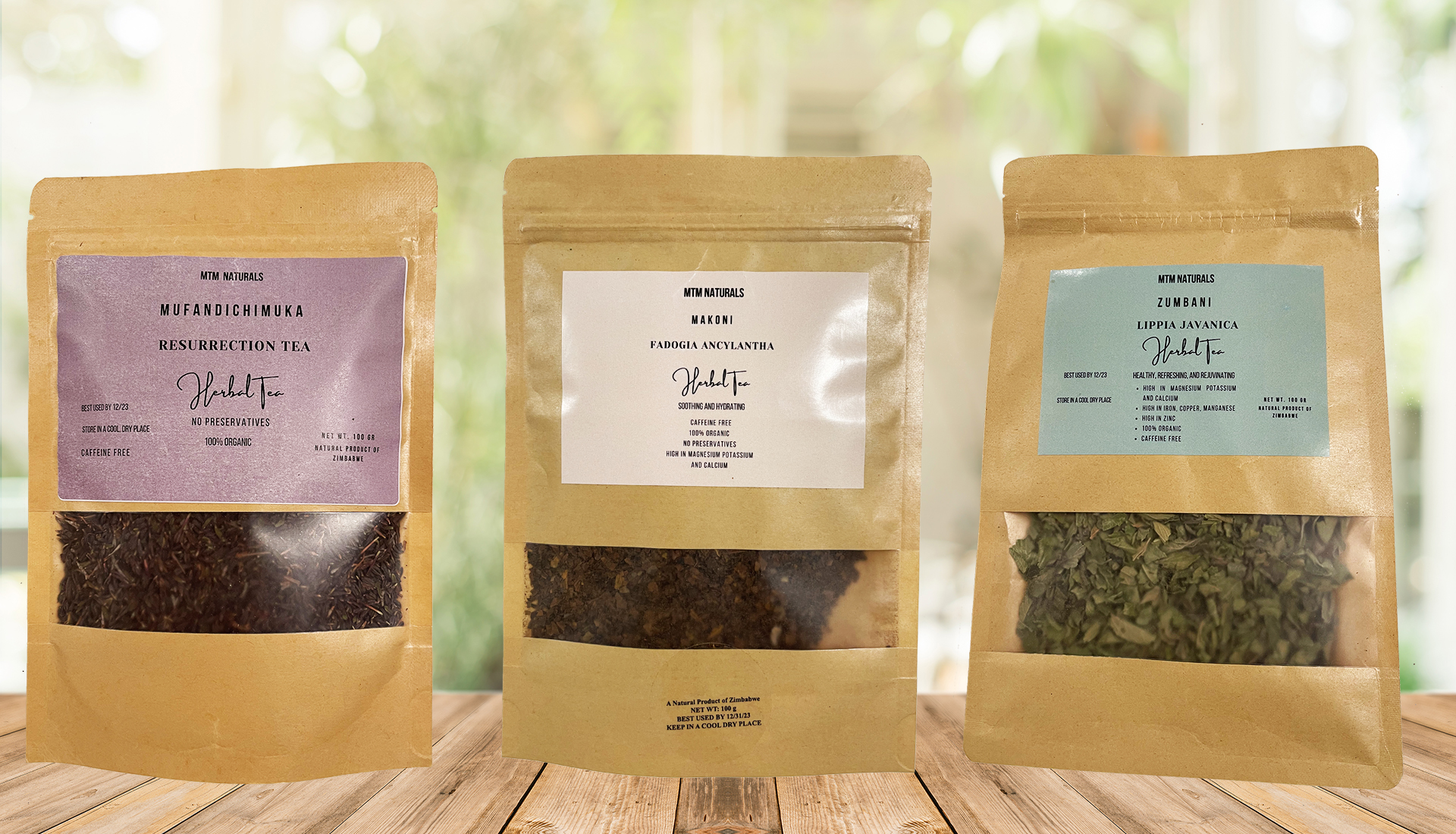
Immune Boosting Tea Combo: Zumbani, Makoni & Mufandichimuka
Combining all 3 teas and adding a little bit of turmeric and ginger will produce a potent immune boosting tea that will help promote a healthy blood flow in the body, which can help with memory and focus, plus potentially prevent illness. Whether you’re worried about flu season, or just want to improve your overall health, try this combination for its wellness effects.
Note: While tea is full of health benefits, it isn’t a replacement for professional medical treatment if you think you might be sick. You should always seek the help of a medical professional if you think you’re suffering from a serious illness.
_____________________________________________
About Teas from Zimbabwe
Over the past decade, there has been an upsurge of interest in herbal teas in Zimbabwe. Interest in the herbs may be a result of effective marketing of their medicinal properties such as boosting immune system, lowering blood pressure, preventing cancer, coronary heart diseases, and strokes. Natural beverages, particularly Camellia sinensis have a healing potential against a variety of oxidative stress-induced diseases (Hong et al., 2014). Padmini and Geetha (2007) also highlighted that tea consumption improved health by significantly restoring antioxidant enzymes superoxide dismutase and catalase.
Most herbal teas that are available over the counter in Zimbabwe are exotic. Rooibos™ made from Aspalathus linearis from neighboring South Africa is one of the most popular. According to the Department of Agriculture Forestry and Fisheries firm, the Republic of South Africa (2011) Rooibos™ tea constituted less than 0.3% of the global tea market, and 10% of the global herbal tea market. The total production volume was around 14,000 tonnes in 2007 whereas Zimbabwean herbal tea production has not yet reached global market capacity.
A. linearis contains phenolic compounds and consumption of these phytochemicals improves health by reducing peroxidation of lipids, scavenging free radicals, increasing total polyphenol content in plasma, decreasing serum low density lipoprotein-cholesterol and reducing hepatotoxins (Joubert et al., 2004, Marnewick et al., 2011). Joubert et al. (2008) also reported that growing knowledge of the plant’s phytochemical properties has led to its consideration as a useful natural product for human health, attracting much popularity in the international market as evidenced by its sales increase in 2001 compared to the previous years.
Zimbabwe is a vast repository of diverse plants, consumed as food, medicine or both since time immemorial (Maroyi, 2013). Medicinal properties of the local herbal teas may be an attribute to phytochemicals such as phenolic compounds. However, the advent of more researched and marketed imported herbal teas such as Rooibos™ has limited the popularity of indigenous herbs. Vindicating the anecdotal claims on the indigenous herbs’ health properties by way of research and publication may help improve their marketability and appreciation by modern society. Several indigenous herbs with a potential of improving the quality of health in society remain underutilized in Zimbabwe.
courtesy off https://www.sciencedirect.com/science/article/pii/S0254629915003221
